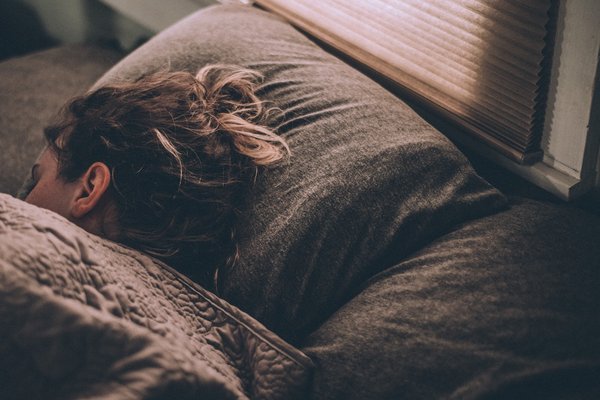We all know that good sleep is a crucial component of living a healthy life. It’s a part of the Big Three health factors — nutrition, exercise and sleep — after all. Not getting enough sleep regularly is associated with a myriad of health issues, including an increased risk of cardiovascular disease, according to a report published on Tuesday.
That said, many U.S. adults report insufficient sleep — defined as fewer than seven hours per day — according to the Centers For Disease Control and Prevention. In addition to the potential detrimental side effects of not getting enough sleep, it can also be downright infuriating and anxiety-inducing, leading people to try anything that will help them catch some ZZZs.
Prescription sleep aids may seem like the cure-all, but some individuals hope to find solace in one of the many over-the-counter remedies promising relief from sleepless nights. One popular remedy is melatonin, a hormone that's already produced in our bodies and is oftentimes used to regulate the sleep-wake cycle, according to Popsugar.
RELATED READ: Sure, you can 'Work hard. Play hard,' but 'Sleep hard,' too
Melatonin is generally regarded as safe when used in the short term, according to the National Institutes of Health, but there's a lack of long-term studies on the topic. To wit, Mayo Clinic reports that melatonin-users rarely become dependent on the supplement, a large risk tied to other sleep aids.
Healthline raises the following concerns about melatonin, while noting that most have not been "thoroughly researched":
• Interaction with sleeping pills: One study found that taking the sleep medication zolpidem along with melatonin exacerbated zolpidem’s adverse effects on memory and muscle performance
• Decreased body temperature: Melatonin causes a slight drop in body temperature. While this is generally not a problem, it could make a difference in people who have difficulty keeping warm.
• Blood thinning: Melatonin may also reduce blood coagulation. As a result, you should speak with your doctor before taking high doses of it with warfarin or other blood thinners
There’s also an herbal supplement that might be worthy of your exploration for a natural sleep aid: valerian root. Results from multiple studies indicate that valerian may reduce speed up the process of falling asleep and could even help you sleep better, according to Mayo Clinic. It is said to be the most effective after you take it regularly for two or more weeks, however, certain side effects such as headache, dizziness, stomach problems or sleeplessness may occur.
“Medical evaluation for sleep problems should always come first," Roth told Popsugar. Talk to your doctor about the dose of melatonin you should take, if they suggest that you would benefit from the supplement.


